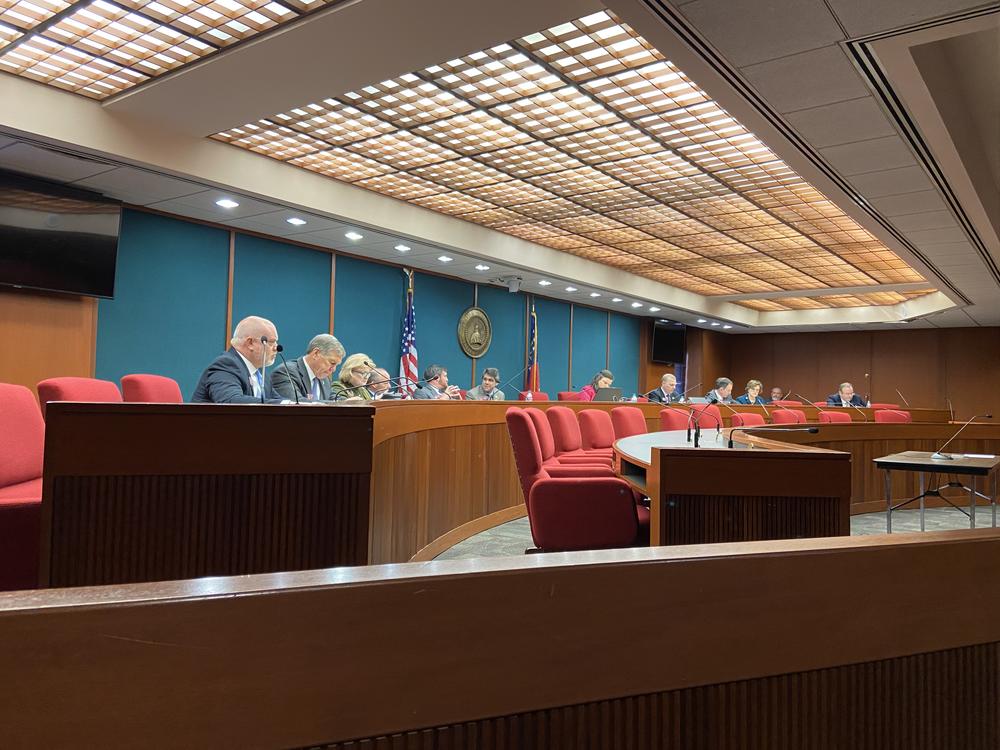Section Branding
Header Content
Bill That Would Change US Senate Special Election Rules Passes Subcommittee
Primary Content
A bill intended to codify the secretary of state’s authority to set qualifying dates for special elections has turned into a proxy battle over Gov. Brian Kemp’s choice for U.S. Senate.
A substitute to HB 757 passed the elections subcommittee of the governmental affairs committee Monday afternoon on an 8-2 vote.
The original language of the bill, authored by House Judiciary Chairman Barry Fleming (R-Harlem), codified a longstanding policy that gave the state’s top election official the latitude to schedule the two-and-a-half day period that candidates for a special election must qualify to appear on the ballot.
The proposal would essentially require Democratic candidates running for Senate to pick a race and either challenge Sen. David Perdue (R-Ga.) or face Sen. Kelly Loeffler (R-Ga.) in a so-called jungle primary where multiple candidates from both parties all run on the same ballot.
But a substitute, presented by Governmental Affairs Chairman Shaw Blackmon (R-Bonaire) added an additional provision aimed at eliminating the jungle primary.
The language of the bill would move Loeffler’s race to a special primary followed by a special general election, mirroring the timing and pace of the contest that Perdue is facing.
That change could force political newcomer and ally of the governor Loeffler to face off against Congressman Doug Collins (R-Gainesville), who was the preferred choice of President Trump in the appointment process.
The change was not unanimous. Rep. Scot Turner (R-Holly Springs) was one of two lawmakers that voted against the bill.
“Obviously, there's something that has happened this year where somebody doesn't like what the governor has done in his appointment,” he said. “And so we're changing the law in advance of this, but we’re not looking down the road at how this would affect future elections.”
He also asked Blackmon to explain where the idea to change the special election came from.
“Well, I think we have seen a good bit of discussion regarding these types of special elections and what that does to us,” Blackmon said. “And I think what we've tried to do and what I feel like this will do is enable voters to weigh in as part of the primary process in a carved out way that will also not be of any greater expense to the taxpayers.”
Fleming, the bill’s sponsor and the primary author of last year’s HB 316 elections overhaul, agreed that jungle primaries for special elections might need to go away.
“My preference would, however, be to not do it in this bill,” he said. The effort to separate that proposal from the other changes was unsuccessful.
A spokeswoman for the governor’s office indicated in a statement that efforts to keep that provision in place would be met with resistance.
“You don’t change the rules at half-time to benefit one team over another. People are sick and tired of it,” Communications Director Candice Broce said in a statement. “The governor will veto any bill that attempts to undermine the rule of law for perceived political gain.”
House Speaker David Ralston (R-Blue Ridge) said in a statement the bill provides voters with order.
“I agree with Secretary of State Raffensperger that this bill provides voters with order and certainty," he said. "Given his statement that he is to hold qualifying for the special election in March, it stands to reason that the electoral process for this special election can mirror that of other offices. The underlying principle of this legislation is a fair, comparable playing field for all those seeking elected office. Surely that is something we can all agree on.”
While the effort to tweak the process of a nationally-watched election is meeting pushback from the governor’s office, there is surprising support from House Democrats.
House minority leader Bob Trammell (D-Luthersville) supported the measure and said it was a good, bipartisan effort to make sure voters have their say.
“I think this is an effort to bring the most small-d democratic process to bear for the U.S. Senate election,” he said after the meeting. “It gives voters in respective primaries a chance to go through and vet their candidates, it gives general election voters the opportunity to have a very clear choice in November, so the way I see this is that it provides some necessary definition and structure.”
Democrats have their own reason to support the bill: making this change would make it easier to coalesce around a single candidate for each Senate race and offer a chance to win the seat currently held by Loeffler outright instead of in a January 2021 runoff.
The bill now heads to the full Governmental Affairs Committee.


